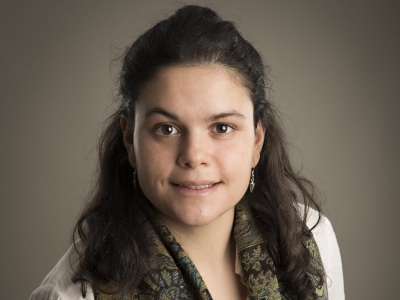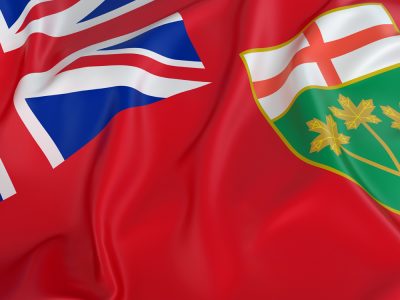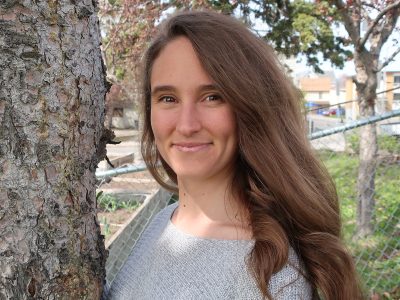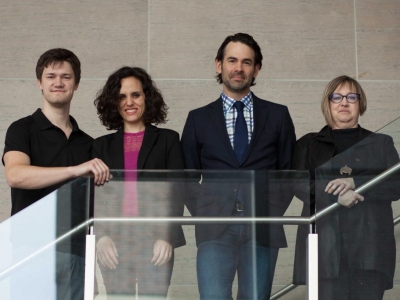By Mary Giles
“My research is personal,” says Nimo Bokore, a professor in the School of Social Work.
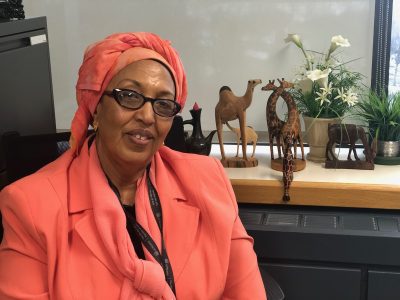
Nimo Bokore
“I am a refugee mother who survived seven months of political imprisonment and torture in my birthplace, Ethiopia, during Mengistu Haile Mariam’s government. After I was forced to leave home with my four young children, we survived refugee camp life in Africa and Europe. My children and I were able to come to Canada through one of Canada’s humanitarian refugee resettlement programs. When I first resettled in Toronto, I faced many barriers trying to build a new life. I found out my non-western education was not valued, so I sought a Canadian education.”
Bokore knew she needed to further her studies in order to help other families like hers. She completed three diploma programs, a bachelor of social work at Ryerson University, a master of social work at the University of Toronto and a PhD in social work at York University. She studied while working, taking care of her children and learning to overcome her own trauma through the books she was reading in class.
She changed careers many times, but was able to work in the resettlement service sector and later as a psychotherapist at a community health centre. Through this first-hand experience, she saw continual barriers and gaps for resettled refugees.
Bokore joined the School of Social Work in 2016. She is also cross-appointed in the Institute of African Studies and the School of Journalism and Communication. She is a faculty associate and mentor in Migration and Diaspora Studies, a program in the Arthur Kroeger College of Public Affairs, and is a researcher in the Local Engagement Refugee Research Network (LERRN), leading the student training working group.
Virtual Mental Health Services in the Pandemic
Bokore is involved in a collaborative health project funded by the Canadian Institutes of Health Research (CIHR), “Promising Practices in Accessing Virtual Mental Health: Supporting Refugees during COVID-19.” Working with medical service providers, the aim is to enhance access to virtual mental health services for refugees and newcomers to Canada during the Pandemic.
“I am fortunate to be able to research issues of refugee resettlement and integration,” says Bokore. “As a survivor of war and forced migration, as well as someone who faced resettlement challenges here in Canada, my work goes beyond simple humanitarian response including integration, social justice, equity and the well-being of resettled refugees.
“I want my research to have lasting impact. Giving refugees a chance to rebuild their lives by providing them with appropriate supports based on their life circumstances helps them heal and feel more at home in Canada.”
Refugee Resettlement and Integration
Bokore’s current SSHRC Partnership Engage project, “Rethinking Resettlement and Integration: Creating Cultural-Based Trauma-Informed Intervention,” is a collaborative, participatory research project with the Somali Centre for Family Services (SCFS), an Ottawa-based organization. Carleton professors Patricia McGuire in the School of Social Work and James Milner in the Department of Political Science are also co-investigators on the team.
Bokore is also part of a research partnership led by LERRN director Professor Milner, “Civil Society and the Global Refugee Regime: Understanding and Enhancing Impact through the Implementation of Global Refugee Policy.” The SSHRC-funded project partners with global NGOs and academics to address the needs of refugees and to find better solutions to issues through research and training. The project will train graduate students to work with academics, NGOs and refugees.
In 2019, Bokore published Life History Research Method: Learning From the Lives of Female Survivors of Wars. “The study captures the personal insights of Somali-Canadian women regarding forced migration and resettlement,” she says. “It’s important that the voices of this marginalized and vulnerable group of women are heard.”
Monday, January 25, 2021 in Faculty Research, FPA Voices
Share: Twitter, Facebook
